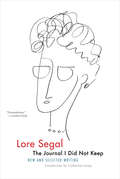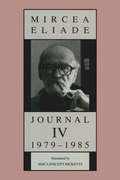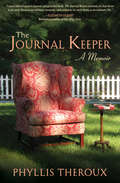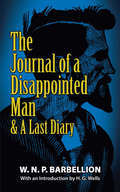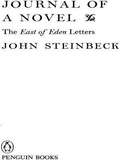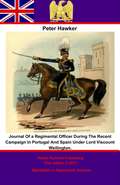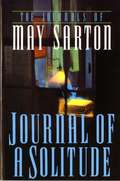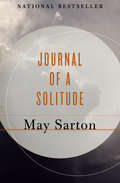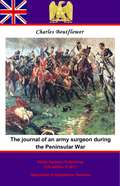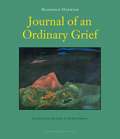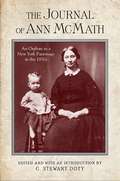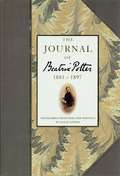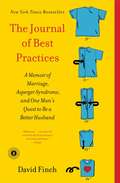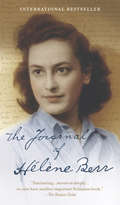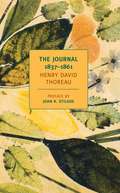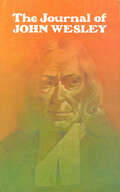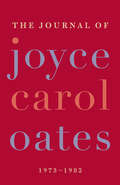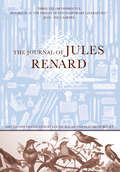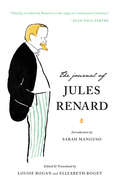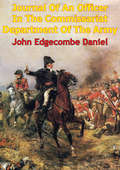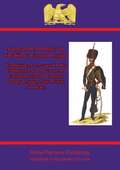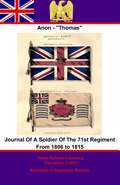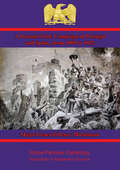- Table View
- List View
The Journal I Did Not Keep: New and Selected Writing
by Lore Segal"Segal is a monumental writer, one of the finest of her generation; this lovely collection is a fine introduction to her work."—Kirkus Reviews A DEFINITIVE COLLECTION FROM ONE OF AMERICA'S FINEST WRITERS—INCLUDING NEW AND NEVER-BEFORE-COLLECTED WORK From the award-winning New Yorker writer comes this essential volume spanning almost six decades. Admired for “a voice unlike any other” (Cynthia Ozick) and a style both “wry and poignant” (The New Yorker), Lore Segal is a master literary stylist. This volume collects some of her finest work—including new and uncollected writing—and selections from her novels, stories, and essays. From her very first story—which appeared in The New Yorker in 1961—to today, Segal’s voice has been unique in contemporary American literature: Hilarious and urbane, heartbreaking and profound, keen and utterly unsentimental. Segal has often used her own biography as both subject and inspiration: At age ten she was sent on the Kindertransport from Vienna to England to escape the Nazi invasion of Austria; grew up among English foster families; and eventually made her way to the United States. This experience was the impetus for her first novel, Other People’s Houses, and one that she has revisited throughout her career. From that beginning, Segal’s writing has ranged widely across form as well as subject matter. Her flawless prose and light touch belie the rigor and intelligence she brings to her art—qualities that were not missed by the New York Times reviewer who pointedly observed, “though it was not written by a man . . . Segal may have come closer than anyone to writing The Great American Novel.” With this volume comes a long-awaited career retrospective of an important American Writer.
Journal IV, 1979-1985
by Mac Linscott Ricketts Mircea EliadeJournal IV is the first publication, in a translation from the Romanian manuscript, of the journal that Mircea Eliade kept during the last seven years of his life. In this period, Eliade is ensconced as a famous scholar--his works are being translated into many languages and books about him arrive regularly in the mail. His encounters with scholars of like repute are recorded in the journal; after a party in Paris, Eliade shares a taxi with Claude Lévi-Strauss and inadvertently makes off with his raincoat. Running like a fault line through the peak of his success, however, is Eliade's painful awareness of his physical decline--failing vision, arthritic hands, and continual fatigue. Again and again he repeats how little time he has to finish the projects he is working on--his autobiography, the third and fourth volumes of his History of Religious Ideas, and the duties associated with his editorship of the Encyclopedia of Religion. He poignantly recounts the sharpest blow: the disorganization and eventual destruction by fire of his personal library. Within the scope of Journal IV Eliade and his world go to ruin. What does not decline is the vivid and persistent voice of Eliade the writer, an unbreaking voice that--with death only months away--plans a reply to critics, plots out an article, and ruminates on characters to people another novella.
The Journal Keeper: A Memoir
by Phyllis TherouxThe Journal Keeper is the openhearted and unflinchingly honest memoir of six years in writer Phyllis Theroux's life. As she ages into her sixties, Theroux uses regular journal entries to reflect on the void left by the passing of her remarkable mother and the thrill of allowing a new source of joy into her life. A natural storyteller, Theroux slips her arm companionably into yours, like an old friend going for a stroll. But Theroux's stride is long and her eye sharp, and she swings easily between subjects that occupy us all: love, loneliness, growing old, financial worries, spiritual growth, and caring for an aging parent.A compelling tale in journal form, The Journal Keeper is a rich feast from the writing life — with an unexpected twist. After the death of her mother leaves Theroux feeling adrift, she finds the love that she believed was closed to a woman of her age.Not until Theroux sat down to edit her journals for publication did she realize, in her words, "that a hand much larger and more knowing than my own was guiding my life and pen across the page." She makes a good case for this being true for us all.
The Journal of a Disappointed Man: & A Last Diary
by W.N.P. BarbellionPublished shortly before the author's death in 1919, The Journal of a Disappointed Man presents a remarkable memoir that addresses struggles with poverty, inadequate education, and the creeping paralysis of multiple sclerosis. Yet author W. N. P. Barbellion manages to write with uplifting eloquence and passion of his love for family, natural history, music, and literature. Told with a thoroughly modern voice, the unjustly overlooked Journal is reprinted here with its posthumous successor, A Last Diary. This edition features a thoughtful Introduction by H. G. Wells, who writes of the book's "exquisite beauty." W. N. P. Barbellion (1889–1919), whose real name was Bruce Frederick Cummings, was a naturalist who worked in the Entomology Department of London's Natural History Museum. Upon attempting to enlist in the British Army during World War I, he was diagnosed with multiple sclerosis. The discovery of his disease intensified the tenor of his journal-keeping, and his frank and articulate reflections on coping with a fatal illness remain a powerful testament to his life and struggles.
Journal of a Novel: The East of Eden Letters
by John SteinbeckEach working day from January 29 to November 1, 1951, John Steinbeck warmed up to the work of writing East of Eden with a letter to the late Pascal Covici, his friend and editor at The Viking Press. It was his way, he said, of "getting my mental arm in shape to pitch a good game. " Steinbeck's letters were written on the left-hand pages of a notebook in which the facing pages would be filled with the test of East of Eden. They touched on many subjects--story arguments, trial flights of worknamship, concern for his sons. Part autobiography, part writer's workshop, these letters offer an illuminating perspective on Steinbeck's creative process, and a fascinating glimpse of Steinbeck, the private man. .
Journal Of a Regimental Officer During The Recent Campaign In Portugal And Spain Under Lord Viscount Wellington.: With A Correct Plan Of The Battle Of
by Peter HawkerThis ebook is purpose built and is proof-read and re-type set from the original to provide an outstanding experience of reflowing text for an ebook reader. Captain Peter Hawker was a young officer, full of enthusiasm, cultured and with a eye of an artist in his when he started out his service in the Peninsula with the 14th Light Dragoons. Although memoirs of the Peninsula abound, most were written some years after the events described in them, his short reminiscence was written immediately after his return in 1810 and retains the freshness of his memory aided by notes of his journal that he entered at the time. Hawker entered into the fray in late 1808 and joined the Peninsular army just before Wellington took over command, the first part of his journal focuses on the sights and scenery in and around Lisbon as he takes the role of a tourist. He describes the beautiful yet un-healthy city, its churches and the destruction left by the occupying French before he moves with the army northward. He is none too pleased with the towns and villages that he enters filled as they are with vermin, fleas and lice. He and his squadron take part in the forcing passage of the Douro and engage in a successful but reckless charge against an entire brigade. Having ejected Soult and his French divisions in some disarray from Portugal, Hawker and his comrades pass into Spain, he masterfully describes the magnificent scenery, and although the villages are less mean and better kept the civilians are only happy whilst the British army advances. He gives a good account of the battle of Talavera in which he took a full part and was seriously wounded, and is not backward in apportioning blame to some of the Spanish soldiers who ran away without being seriously attacked. After the battle due to some serious miscommunication between Wellington and Cuesta, Hawker is left behind with the wounded and is forced to make his epic journey back to British lines with only his wits and his servant with him, his hip broken and a bullet lodged in his back. Text taken, whole and complete, from the 1810 edition, published by R Johnston, London. Original -137 pages Maps - 1 - Not Included due to its size - A3 Author - Peter Hawker - (1786-1853)
Journal of a Solitude
by May Sarton"I am here alone for the first time in weeks," May Sarton begins this book, "to take up my 'real' life again at last. That is what is strange, that friends, even passionate love, are not my real life, unless there is time alone in which to explore what is happening or what has happened." In this journal, she says, "I hope to break through into the rough, rocky depths, to the matrix itself. There is violence there and anger never resolved. My need to be alone is balanced against my fear of what will happen when suddenly I enter the huge empty silence if I cannot find support there." In this book, we are closer to the marrow than ever before in May Sarton's writing.
Journal of a Solitude: Journal Of A Solitude, Plant Dreaming Deep, And Recovering
by May SartonThe poet and author&’s &“beautiful . . . wise and warm&” journal of time spent in her New Hampshire home alone with her garden, her books, the seasons, and herself (Eugenia Thornton, Cleveland Plain Dealer). &“Loneliness is the poverty of self; solitude is richness of self.&” —May Sarton May Sarton&’s parrot chatters away as Sarton looks out the window at the rain and contemplates returning to her &“real&” life—not friends, not even love, but writing. In her bravest and most revealing memoir, Sarton casts her keenly observant eye on both the interior and exterior worlds. She shares insights about everyday life in the quiet New Hampshire village of Nelson, the desire for friends, and need for solitude—both an exhilarating and terrifying state. She likens writing to &“cracking open the inner world again,&” which sometimes plunges her into depression. She confesses her fears, her disappointments, her unresolved angers. Sarton&’s garden is her great, abiding joy, sustaining her through seasons of psychic and emotional pain.Journal of a Solitude is a moving and profound meditation on creativity, oneness with nature, and the courage it takes to be alone. Both uplifting and cathartic, it sweeps us along on Sarton&’s pilgrimage inward.This ebook features an extended biography of May Sarton.
The Journal of an Army Surgeon during the Peninsular War (The\spellmount Library Of Military History)
by Charles BoutflowerThis ebook is purpose built and is proof-read and re-type set from the original to provide an outstanding experience of reflowing text for an ebook reader. A rarity amongst Peninsular accounts, are those that come from the medical services of the British army, Boutflower's journal was printed sixty years after his death but remains even now fresh and interesting. His duty was to patch, tend and mend the fighting men of the 40th Regiment of Foot, during the fierce fighting against the French. His journal principally focuses on the campaigns under the Duke of Wellington that stretched from 1809 to 1814, although his service had drawn him to South America and the West Indies beforehand. He was promoted to the staff of Sir Rowland "Daddy" Hill as surgeon in 1812, but not before he had seen and described the butchery of the battle of Albuera. Also present at the battle of Salamanca his narrative, in spite of some erratic spelling, contemporaneous, vital and gripping. A valuable and memorable work. Author - Charles Boutflower - (1782 - 1844) Text taken, whole and complete, from the edition published in 1911, Manchester, by Refuge Printing Dept Original - 196 pages.
Journal of an Ordinary Grief
by Mahmoud Darwish Ibrahim Muhawi"Every beautiful poem is an act of resistance," asserts Darwish. Both voice of the Palestinian people and one of the most transcendent poets of his generation, Mahmoud Darwish also wrote several remarkable volumes of autobiographical essays over the course of his life. First published in Beirut in 1973, these probing essays ask vital questions about the existentially complex realities the Palestinians in Israel face and the ambiguity of Darwish's own identity as an Israeli Palestinian. They call upon myth, memory, and language to delve into the poet's experience of house arrest, his encounters with Israeli interrogators, and the periods he spent in prison. Meditative, lyrical, rhythmic, Darwish gives absence a vital presence in these linked essays. Journal is a moving and intimate account of the loss of homeland and, for many, of life inside the porous walls of occupation--no ordinary grief.
The Journal of Ann McMath: An Orphan in a New York Parsonage in the 1850s (Excelsior Editions)
by Ann McMathIn 1851, fourteen-year-old orphan Ann McMath was sent to live with her uncle and his family in their parsonage in Horseheads, New York. Lonely and full of self doubt, anxious to establish female friendships in a new place, and questing for intellectual and moral perfection, she began keeping journal when she was seventeen and wrote in it regularly for the next five years, until she was married. A fascinating example of "biography from below," McMath's journal offers a rare glimpse of of life in the 1850s as it was lived by ordinary women, told in the authentic voice of a young woman coming of age in the Burned-Over District of Western New York. In addition to the journal itself, the book includes an introduction by editor C. Stewart Doty, as well as a geneaology, notes on the text, and a section entitled "People in the Life of Ann McMath," which gives brief biographies of everyone mentioned in the journal.
The Journal of Beatrix Potter from 1881 to 1897
by Beatrix PotterThis ebook has been optimised for viewing on colour devices. Between the ages of 15 and 30 Beatrix Potter kept a secret diary written in code. When the code was cracked by Leslie Linder more than 20 years after her death, the diary revealed a remarkable picture of upper middle-class life in late Victorian Britain. This book provides an illuminating insight into the personality and inspiration of one of the world's best loved children's authors.
The Journal of Best Practices: A Memoir of Marriage, Asperger Syndrome, and One Man's Quest to Be a Better Husband
by David Finch*A New York Times Bestseller* A warm and hilarious memoir by a man diagnosed with Asperger syndrome who sets out to save his relationship.Five years after David Finch married Kristen, the love of his life, they learned that he has Asperger syndrome. The diagnosis explained David&’s ever-growing list of quirks and compulsions, but it didn&’t make him any easier to live with. Determined to change, David set out to understand Asperger syndrome and learn to be a better husband with an endearing zeal. His methods for improving his marriage involve excessive note-taking, performance reviews, and most of all, the Journal of Best Practices: a collection of hundreds of maxims and hard-won epiphanies, including &“Don&’t change the radio station when she&’s singing along&” and &“Apologies do not count when you shout them.&” David transforms himself from the world&’s most trying husband to the husband who tries the hardest. He becomes the husband he&’d always meant to be. Filled with humor and wisdom, The Journal of Best Practices is a candid story of ruthless self-improvement, a unique window into living with an autism spectrum condition, and proof that a true heart is the key to happy marriage.
The Journal of Hélène Berr
by Hélène BerrNot since The Diary of Anne Frank has there been such a book as this: The joyful but ultimately heartbreaking journal of a young Jewish woman in occupied Paris, now being published for the first time, 63 years after her death in a Nazi concentration camp.On April 7, 1942, Hélène Berr, a 21-year-old Jewish student of English literature at the Sorbonne, took up her pen and started to keep a journal, writing with verve and style about her everyday life in Paris -- about her studies, her friends, her growing affection for the "boy with the grey eyes," about the sun in the dewdrops, and about the effect of the growing restrictions imposed by France's Nazi occupiers. Berr brought a keen literary sensibility to her writing, a talent that renders the story it relates all the more rich, all the more heartbreaking.The first day Berr has to wear the yellow star on her coat, she writes, "I held my head high and looked people so straight in the eye they turned away. But it's hard." More, many more, humiliations were to follow, which she records, now with a view to posterity. She wants the journal to go to her fiancé, who has enrolled with the Free French Forces, as she knows she may not live much longer. She was right. The final entry is dated February 15, 1944, and ends with the chilling words: "Horror! Horror! Horror!" Berr and her family were arrested three weeks later. She went -- as was discovered later -- on the death march from Auschwitz to Bergen-Belsen, where she died of typhus in April 1945, within a month of Anne Frank and just days before the liberation of the camp.The journal did eventually reach her fiancé, and for over fifty years it was kept private. In 2002, it was donated to the Memorial of the Shoah in Paris. Before it was first published in France in January 2008, translation rights had already been sold for twelve languages.
The Journal of Henry David Thoreau: 1837-1861
by Henry David Thoreau Damion Searls John StilgoeHenry David Thoreau's Journal was his life's work: the daily practice of writing that accompanied his daily walks, the workshop where he developed his books and essays, and a project in its own right--one of the most intensive explorations ever made of the everyday environment, the revolving seasons, and the changing self. It is a treasure trove of some of the finest prose in English and, for those acquainted with it, its prismatic pages exercise a hypnotic fascination. Yet at roughly seven thousand pages, or two million words, it remains Thoreau's least-known work. This reader's edition, the largest one-volume edition of Thoreau's Journal ever published, is the first to capture the scope, rhythms, and variety of the work as a whole. Ranging freely over the world at large, the Journal is no less devoted to the life within. As Thoreau says, "It is in vain to write on the seasons unless you have the seasons in you."
The Journal of John Wesley
by Percy Livingstone Parker"Christians will find their hearts warmed as they read this diary of one whose heart was intensely warmed by the love of God." --Bibliotheca SacraThe influence of John Wesley on the history of the modern Christian Church is inestimable. Not only did his extensive evangelistic work in England and the United States have a very powerful effect, but his devotional meditations have become loved and cherished by Christians everywhere. John Wesley's complete journal, which he added to daily, encompasses twenty-six volumes describing his experiences and deep inner spiritual life and growth. During his lifetime, portions of this journal were published in four volumes. Here in this handy paperback are selections from this work, giving easy access to the ardent meditations and unique experiences of this man of God. A new understanding of John Wesley and his ministry will be gained from reading this journal, but more important, it offers a new understanding of the God he served.
The Journal of John Wesley
by Percy Livingstone Parker"Christians will find their hearts warmed as they read this diary of one whose heart was intensely warmed by the love of God." --Bibliotheca SacraThe influence of John Wesley on the history of the modern Christian Church is inestimable. Not only did his extensive evangelistic work in England and the United States have a very powerful effect, but his devotional meditations have become loved and cherished by Christians everywhere. John Wesley's complete journal, which he added to daily, encompasses twenty-six volumes describing his experiences and deep inner spiritual life and growth. During his lifetime, portions of this journal were published in four volumes. Here in this handy paperback are selections from this work, giving easy access to the ardent meditations and unique experiences of this man of God. A new understanding of John Wesley and his ministry will be gained from reading this journal, but more important, it offers a new understanding of the God he served.
The Journal of Joyce Carol Oates, 1973-1982
by Joyce Carol OatesThe Journal of Joyce Carol Oates, edited by Greg Johnson, offers a rare glimpse into the private thoughts of this extraordinary writer, focusing on excerpts written during one of the most productive decades of Oates's long career. Far more than just a daily account of a writer's writing life, these intimate, unrevised pages candidly explore her friendship with other writers, including John Updike, Donald Barthelme, Susan Sontag, Gail Godwin, and Philip Roth. It presents a fascinating portrait of the artist as a young woman, fully engaged with her world and her culture, on her way to becoming one of the most respected, honored, discussed, and controversial figures in American letters.
The Journal of Jules Renard
by Jules Renard Louise Bogan Elizabeth Roget<P> Spanning from 1887 to a month before his death in 1910, The Journal of Jules Renard is a unique autobiographical masterpiece that, though celebrated abroad, is largely undiscovered in the United States. <P> Spanning from 1887 to a month before his death in 1910, The Journal of Jules Renard is a unique autobiographical masterpiece that, though celebrated abroad and cited as a principle influence by writers as varying as Somerset Maugham and Donald Barthelme, remains largely undiscovered in the United States. Throughout his journal, <P> Renard develops not only his artistic convictions but also his humanity as he reflects on the nineteenth-century French literary and art scene, and on the emergence of his position as an important novelist and playwright in that world. Renard provides aphorisms and quips, and portrays the details of his personal life--his love interests, his position as a socialist mayor of Chitry, the suicide of his father--that often appear in his work.
The Journal of Jules Renard
by Jules Renard Sarah MangusoSpanning 1887 to a month before his death in 1910, The Journal of Jules Renard is a unique autobiographical masterpiece that, though celebrated abroad and cited as a principle influence by writers as varying as Somerset Maugham and Donald Barthelme, remains more of a cult object in the United States. <P><P> Throughout his journal, Renard develops not only his artistic convictions but also his humanity as he reflects on the nineteenth-century French literary and art scene, and on the emergence of his position as an important novelist and playwright in that world. Through a mix of aphorisms and observations, short scenes, gossip, jokes, and meditations on life and art, Renard portrays the details of his personal life, his love interests, his position as a socialist mayor of Chitry, the suicide of his father, that often appear in his work. <P><P> In recent years, the fragmented memoir has grown in popularity, and there’s been a resurgence of diary as an artistic form. Once again, Jean Paul Sartre’s assessment that “directly, or indirectly, Renard is at the origin of contemporary literature” rings true. In a new introduction, Sarah Manguso—whose groundbreaking nonfiction incorporates elements of diary and aphorism—both contextualizes and celebrates Renard’s seminal journal.
Journal Of My Life
by Jacques-Louis Ménétra Daniel Roche Robert DarntonAn eighteenth-century Frenchman describes life in Paris, the events of the French Revolution, and his own fondness for pranks and jokes.
Journal Of An Officer In The Commissariat Department Of The Army: Comprising A Narrative Of The Campaigns Under The Duke Of Wellington, In Portugal, Spain, France, And The Netherlands
by John Edgecombe Daniel"A reporter's eye on great historical events"Readers may be of the initial opinion that the view of an officer of the Commissariat Department would be necessarily less dynamic than that of a regimental officer. In fact, Daniel's position as a non-combatant has proved to be the exact opposite and of particular value to those interested in his subject matter by his comparative detachment from the narrow and confused view of the actual battle line. Daniel was able to overview the great events of which he was a participant and leave us essential reports that few were in a position to witness. Actually, Daniel was often close enough to the action as to have comrades killed next to him, so this is far from a view 'from behind the lines.' We follow Daniel on campaign with the 'Great Duke' throughout the Peninsula, over the Pyrenees and into Southern France. When the time comes to bring the Emperor to account at Waterloo, Daniel once again joined Wellington's Army in the field and he has provided another vital insight into the campaign of 1815 to enhance our knowledge of these pivotal events."-Print Edition
Journal Of An Officer In The King's German Legion
by AnonDuring the Napoleonic Wars, many elite units served their respective masters. However, few had such an enduring yet brief history as the King's German Legion. Recruited predominantly from Hanover, which had been invaded by the French in 1803, the men of the Legion would face many tough adventures all over Europe before returning to their homeland again.In this anonymously published memoir, the author recounts his adventures on land and sea, fighting fiercely against the Napoleonic domination of Europe from Denmark to Malta, from the mountains of Portugal to the plains of Spain. The author was present at the capture of Oporto and the battles of Talavera and Fuentes d'Oñoro, and his tales of adventure are described in pacy detail.Author -- AnonText taken, whole and complete, from the edition published in 1827, London, by Henry Colburn.Original Page Count - xxiv and 329 pages.
Journal Of A Soldier Of The 71st Regiment From 1806 to 1815
by Pickle Partners Publishing Anon Thomas"This ebook is purpose built and is proof-read and re-type set from the original to provide an outstanding experience of reflowing text for an ebook reader. This work is the journal of an anonymous soldier from Edinburgh, known only as Thomas, having enlisted as a short term soldier for seven years in 1806. He was not motivated by any thought of gaining glory in the wars against France; his motive for enlisting was his lost honour and the shame of having wronged his parents following a failed attempt at a stage career. He was an educated man and wrote very well, but, haunted by the dishonour of his actions, he took the King's shilling from the first recruiting sergeant that was passing. Unknown to him this regiment was the 71st, later Highland Light Infantry, a regiment of great renown and élan that had and would be in the forefront of the fighting. Thomas saw his redemption in a journey through the purgatory of service as a private soldier in the British army. His travails would be hard and the privations many but bound by his word he sticks to his resolution. He was to campaign far and wide: from the expedition to Buenos Ayres, during which he was captured, to the despicable conditions of the retreat to Coruña, fever-ridden Walcheren, battles and skirmishes in the Peninsula including Roleia, Vimiero, Fuentes D'Oñoro, Vittoria, Bayonne and the Nivelle, and finally the battle of Waterloo. His discharge followed soon after and, despite being back in his homeland of Scotland, the penury of an ex-serviceman was his only reward. A vivid and uncompromising tale of hard fighting, privation and the realities of war. Text taken, whole and complete, Constable's Miscellany, Vol. XXVII, Memorials of the Late War Vol. I. published Constable & Co, Edinburgh 1828. Original -119 pages Author - Anon- (1790-????) There are no chapters, hence no TOC
A Journal of the Campaign in Portugal and Spain
by Major-General Henry MackinnonThis ebook is purpose built and is proof-read and re-type set from the original to provide an outstanding experience of reflowing text for an ebook reader. The body of Major-General Mackinnon now lies in St. Paul's Cathedral in London, next to his brother officer Major-General Robert Craufurd, both casualties of the assault on Cuidad Rodrigo during the Peninsular War. Mackinnon left behind his private journal filled with the details of the scenery, manners, customs and people of both Spain and Portugal as he found them during the Peninsular War, right up until his death. The journal was only intended for perusal by his closest family, but bears closer examination by those interested in the Peninsular War. Title - A Journal of the Campaign in Portugal and Spain Sub-Title - Containing Remarks on the Inhabitants, Customs, Trade and Cultivation, of those Countries, From the Year 1809 to 1812. Author -- Major-General Henry Mackinnon (????-1812) Text taken, whole and complete, from the edition published in 1907, London, by Longmans and Green. Original - iii and 102 pages.
